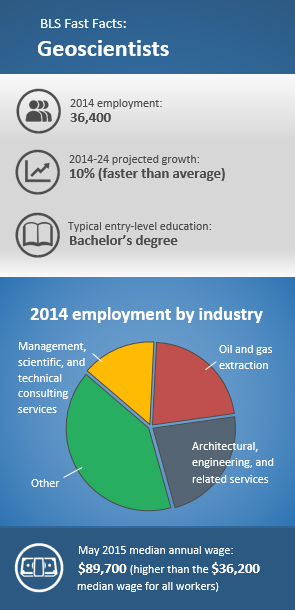All Categories
Featured
Table of Contents
Surveys In Geophysics in Lockridge WA 2022
Link with MBA programs seeking candidates like you. Study. Link with master's programs around the country to get an edge over the competition.

A geophysicist studies numerous elements of the earth. Watch a video to learn what a geophysicist: Geophysicists need to earn a minimum of a bachelor's degree; however, this is for an entry-level position.
If you want study you should pursue a Ph. D. Undergrad coursework usually consists of geology, mathematics, ecological science, or physics. Postgraduate degree need more particular studies in the specialized of option. Locations can consist of oceanography, climatic physics, meteorology, planetary, petroleum, environmental, and mining. Task prospects are greater if you have a strong background in computer system science or technology.
Greeley-evans Area 3d Geophysical Survey in Karawara Australia 2022
Access to these opportunities may be restricted depending upon where you live; however, internships or summer programs with geophysical business, university geophysics department, or the U.S. Geological Study can be options. You can find a list of a list of opportunities on the United States Geological Study (USGS) sites' Path Programs tab (opens in another link).
Geophysicists also work with computer systems while looking into, so computer courses can likewise be handy, as pointed out previously in this article. Numerous geophysicists specialize in a location of geophysics.
A geophysicist's responsibilities can include determining, tracking, and documenting data from various physical homes on earth. They also examine and examination information got. Geophysicists often have to take a trip worldwide to analyze geological occasions that have actually happened or may have been anticipated. Geophysics is a research-based profession field, for that reason one need to have the ability to hypothesize, problem-solve, and concern or challenge formerly held assumptions from their gathered information.
Geophysical Surveys in North Perth Western Australia 2020
For example, Jay Wellik, a geophysicist, studies volcanos. His location of knowledge in geophysics is investigating why volcanos emerge and what indicators there might be that an eruption may take place. He tracks seismic activity and then follows what takes place before, during, and after a volcano erupts. Geophysicists normally work full-time hours; however, they frequently work irregular hours, as mentioned formerly.

You can discover extra details about Geophysicists together with additional academic products on the U.S. Geological Survey site (links open in a brand-new window). Laura Stern, of the U.S. Geological Study at the Gas Hydrates Lab in Menlo Park, California: We make a variety of various hydrates in the laboratory.
We likewise make carbon dioxide hydrate, ethane hydrate, propane, a number of various structures. It's about 100 degrees colder than the temperature level at which these hydrate samples would dissociate, when they would decompose to ice plus gas on the tabletop.
Uses For Geophysical Data in Beechboro Western Australia 2023
The samples we make, their polycrystalline. They appear like snow, it looks like compressed snow but honestly, it does consist of gas inside. Take a little piece off here and as it heats up, you'll start to see it pop. It's reverting to ice plus gas and then as the ice would melt as it continues to warm, it will end up being water plus gas.
My name is Steve Kirby, I'm a Geophysicist here at the U.S. Geological Survey in Menlo Park. I work with Laura Stern who is also a Geophysicist in this laboratory that adheres towards the investigation of planetary ices and gas hydrates. Gas hydrates in nature take place in really remote places and they are very intricate with the interactions and conditions that they form under and samples that are brought up are under some sort of alternation or decomposition.
This is an uncommon laboratory and there are just a handful of them worldwide and we are really lucky to be here at the Geological Survey and to have the chance of working on them. Bureau of Labor Statistics, U.S. Department of Labor, Occupational Outlook Handbook, Geoscientists. National Center for O * Internet Development.
Uses For Geophysical Data in Pearsall Australia 2021
This video was produced by the federal government for the U.S. Geological Survey. The USGS Gas Hydrates Lab is moneyed by the Department of Energy and the USGS Gas Hydrates Project.
Table of Contents
Latest Posts
Geophysical Survey - Mining Fundamentals in Mahogany Creek Aus 2023
How To Become A Geophysicist in South Fremantle Oz 2022
Field Geophysicist - Parsons Careers – Engineered Systems in Ballajura Aus 2021
More
Latest Posts
Geophysical Survey - Mining Fundamentals in Mahogany Creek Aus 2023
How To Become A Geophysicist in South Fremantle Oz 2022
Field Geophysicist - Parsons Careers – Engineered Systems in Ballajura Aus 2021